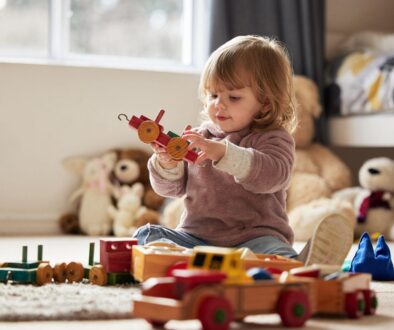The Importance of Gratitude

Gratitude is more than just saying “thank you”—it’s an important mindset that helps young children appreciate the positive aspects of life. Teaching gratitude at an early age can have long-lasting benefits, helping children develop into happier, more empathetic, and resilient individuals. But how can parents instill this valuable trait in their little ones?
Why Gratitude Matters for Young Children
- Fosters Emotional Well-being
Gratitude encourages children to focus on what they have rather than what they lack. This positive perspective can lead to increased happiness and emotional balance, even in challenging situations. - Builds Empathy and Social Connections
When children learn to appreciate the kindness of others, they naturally become more empathetic. Gratitude helps them recognize and value the efforts people make on their behalf, building stronger, more meaningful relationships. - Develops a Growth Mindset
Gratitude allows children to view the world with curiosity and appreciation. By focusing on positive experiences, they develop resilience and a growth mindset, learning to see opportunities in obstacles.
Simple Ways to Teach Gratitude
- Model Gratitude
Children learn from what they see. Make it a habit to express gratitude in everyday situations. Thank them when they help out, and show appreciation for the small joys in life. - Gratitude Conversations
At bedtime or during meals, ask your child, “What are you thankful for today?” This simple reflection can help them focus on positive moments, even in a routine day. - Thank You Notes and Acts of Kindness
Encourage children to express gratitude by making thank-you cards or small gestures for friends and family. This helps them understand that appreciation is not just a feeling but something they can actively show.
Teaching gratitude early builds a foundation for emotional intelligence, resilience, and kindness that will benefit children throughout their lives. By nurturing a grateful mindset, parents can help young children develop a sense of appreciation for the world around them and a deeper understanding of what it means to live with joy and compassion.
Gratitude is more than just saying “thank you”—it’s an important mindset that helps young children appreciate the positive aspects of life. Teaching gratitude at an early age can have long-lasting benefits, helping children develop into happier, more empathetic, and resilient individuals. But how can parents instill this valuable trait in their little ones?
Why Gratitude Matters for Young Children
- Fosters Emotional Well-being
Gratitude encourages children to focus on what they have rather than what they lack. This positive perspective can lead to increased happiness and emotional balance, even in challenging situations. - Builds Empathy and Social Connections
When children learn to appreciate the kindness of others, they naturally become more empathetic. Gratitude helps them recognize and value the efforts people make on their behalf, building stronger, more meaningful relationships. - Develops a Growth Mindset
Gratitude allows children to view the world with curiosity and appreciation. By focusing on positive experiences, they develop resilience and a growth mindset, learning to see opportunities in obstacles.
Simple Ways to Teach Gratitude
- Model Gratitude
Children learn from what they see. Make it a habit to express gratitude in everyday situations. Thank them when they help out, and show appreciation for the small joys in life. - Gratitude Conversations
At bedtime or during meals, ask your child, “What are you thankful for today?” This simple reflection can help them focus on positive moments, even in a routine day. - Thank You Notes and Acts of Kindness
Encourage children to express gratitude by making thank-you cards or small gestures for friends and family. This helps them understand that appreciation is not just a feeling but something they can actively show.
Teaching gratitude early builds a foundation for emotional intelligence, resilience, and kindness that will benefit children throughout their lives. By nurturing a grateful mindset, parents can help young children develop a sense of appreciation for the world around them and a deeper understanding of what it means to live with joy and compassion.





